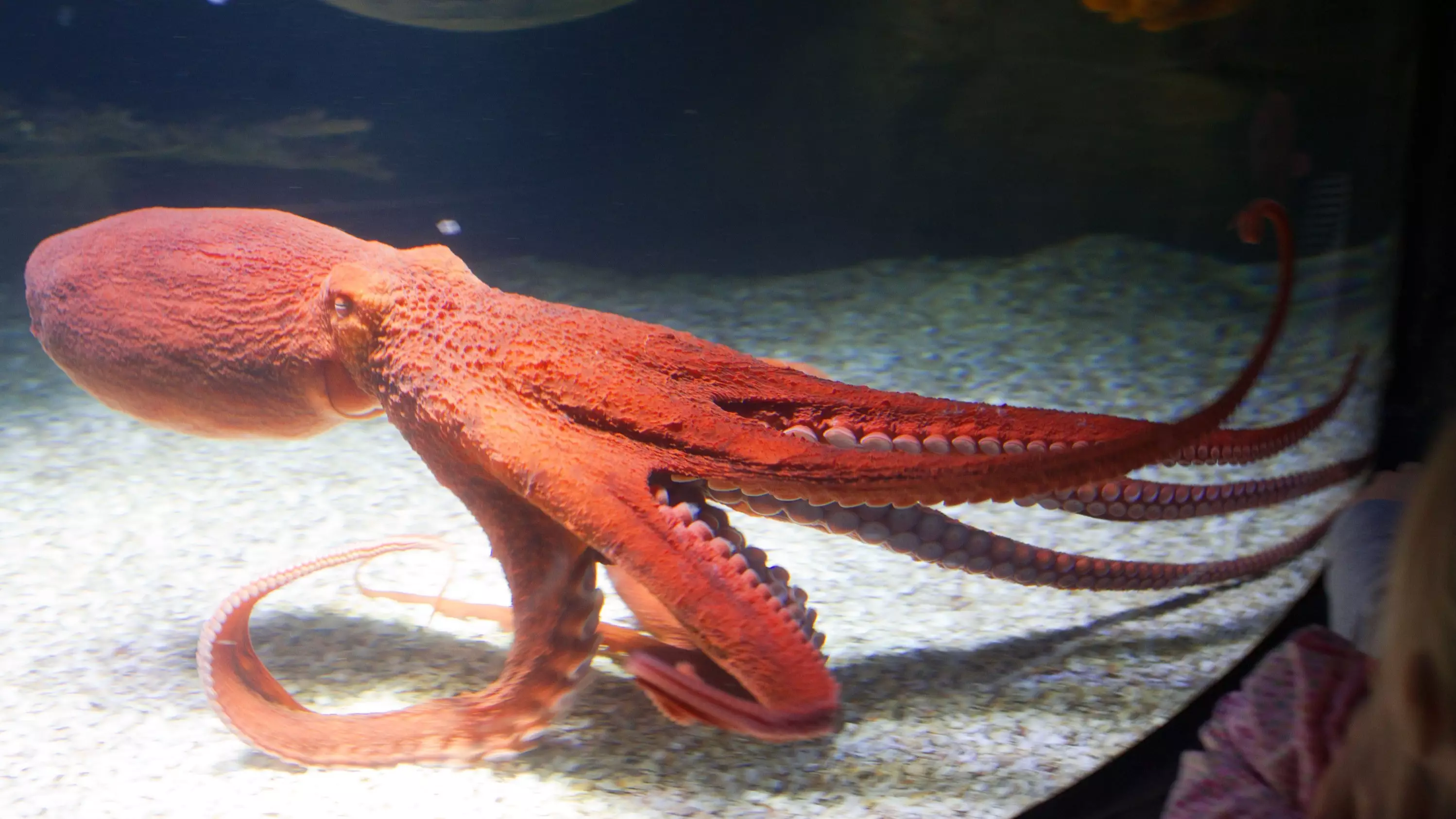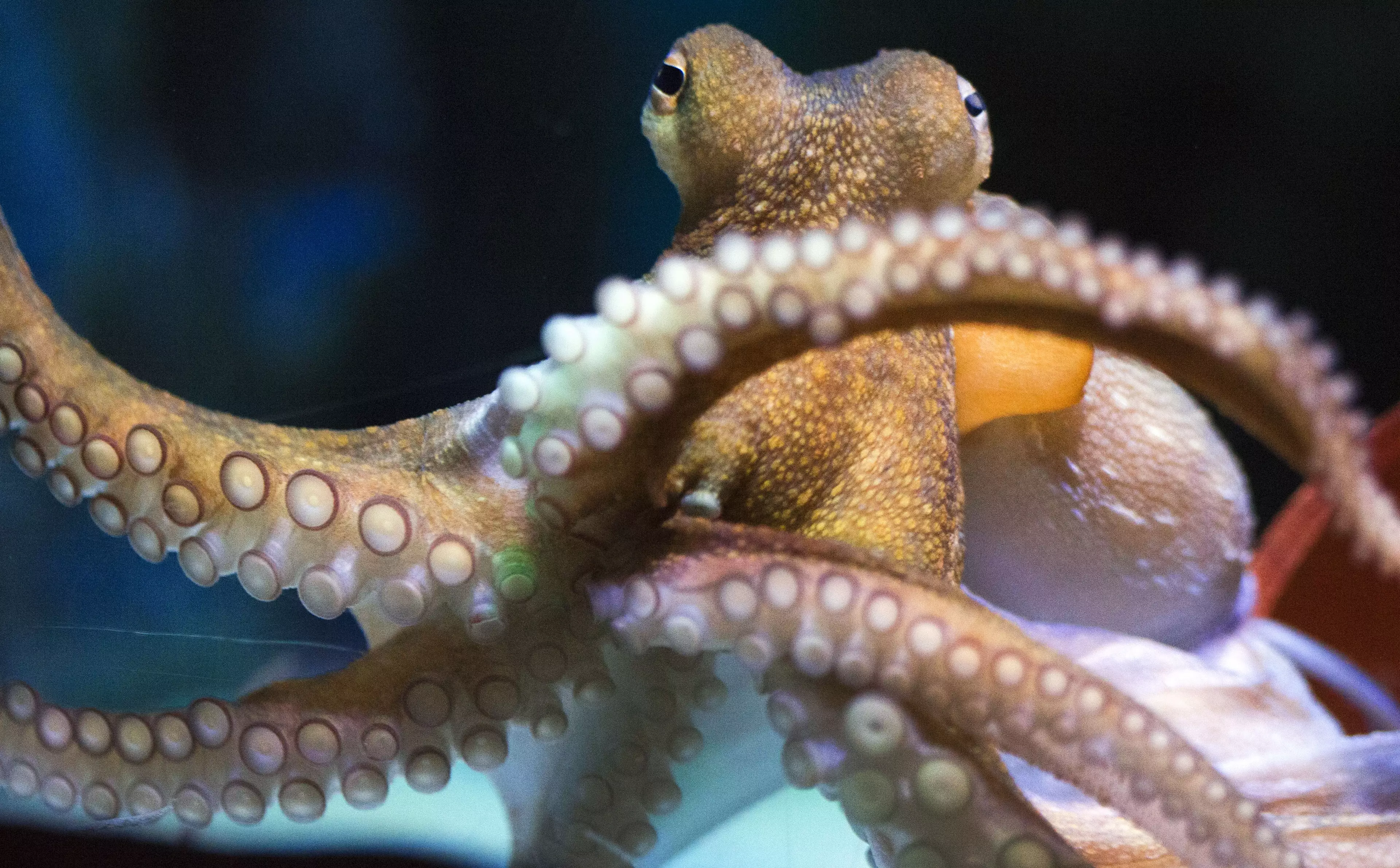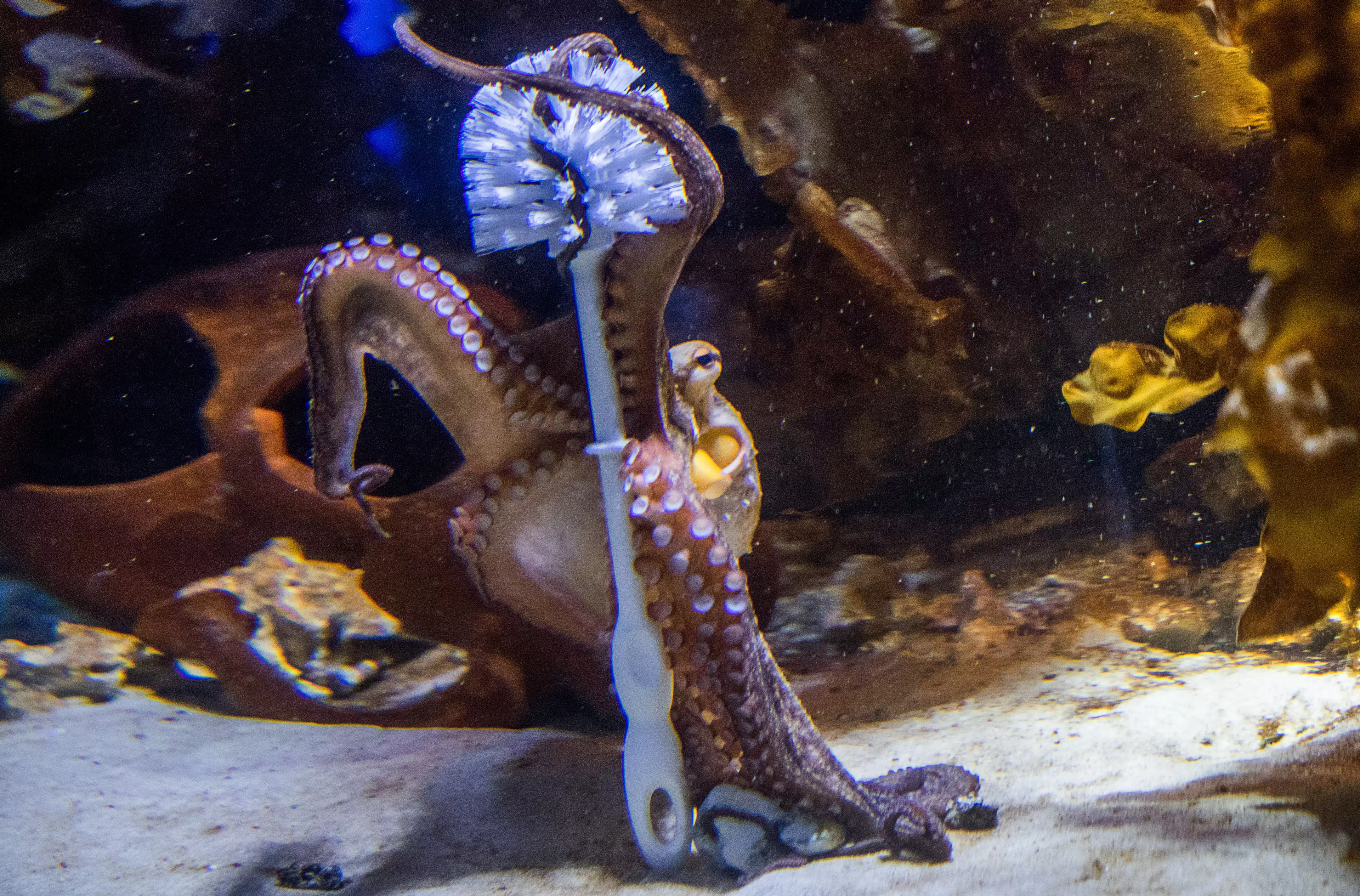
Science is a wonderful thing. It has the scope and the power to change the world for the better, advancing our knowledge and solving some of the world's most difficult questions.
Questions like, what happens if you get an octopus really high?
Now, you might not think that to be the most pressing question ever asked, but it definitely came within the realms of 'unanswered'. Until now, that is.

Gül Dölen, a neuroscientist from Johns Hopkins University School of Medicine, said that the study was necessary to see if octopuses can become social.
Again, that might not be the most pressing issue of our time, but the answer is - perhaps unsurprisingly - yes, if you get them high on MDMA.
You see, octopuses are highly intelligent creatures. They can open jars, use tools, and do all sorts of brainy stuff. However, they are largely asocial creatures. They are pretty likely to fight with other octopuses (and just about anything else) if they come into contact with them.
Not if they're buzzing they aren't.
Dölen said: "People are like, 'Have you got any pictures of octopuses holding glow sticks?' which I kind of ignore because that wasn't really our objective. MDMA is a great tool for investigating whether or not an octopus can become social.
"Even during mating the male will just leave his sperm and depart as quickly as possible, because if he sticks around she'll attack him,"
Sound familiar? Just kidding.
Anyway, once the octopuses in the study were exposed to the MDMA they immediately became more social and spent a lot of time with each other. They also became more tactile. Now that actually does sound sort of familiar.
Dölen continued: "Some were being very playful, doing water acrobatics or spent time fondling the airstone [aquarium bubbler],"
This research is interesting because octopuses have such different brains to us, but a similar reaction. It suggests that basic brain chemistry is very important, regardless of what type of brain a creature might have.

Prof. David Nutt, from Imperial College, London, said: "This just proves that this is not some peculiar human characteristic, it's not even a mammalian characteristic, it's a characteristic of brains.
"It also shows that serotonin has a hugely important role in mediating social interactions right across species."
So, what are the human implications of this? Well, Dölen hopes that it can advance into studying psychiatric medicines across a number of species, as well as furthering the appetite to explore studies of psychedelic and recreational drugs.
She said: "Serious scientists are jumping in and saying we can learn a lot from these tools,
"I hope that this is one of the studies that pushes us in that direction and it's not one of those weird things that only ravers know anything about."
Featured Image Credit: PA